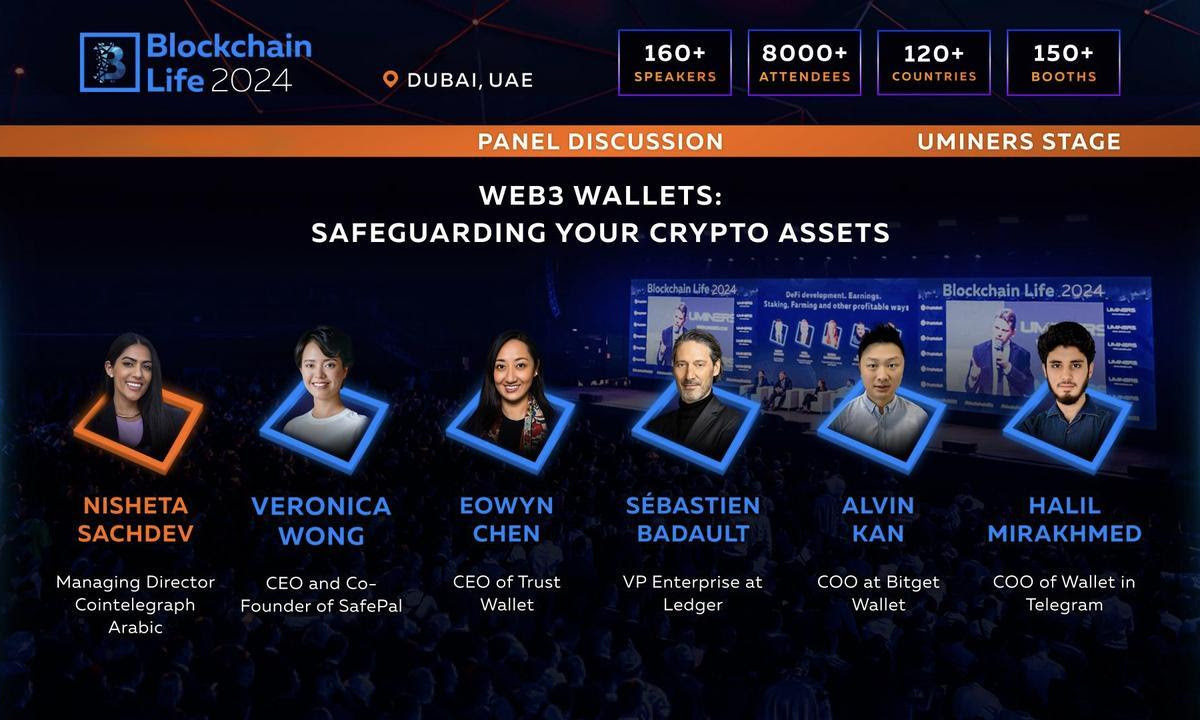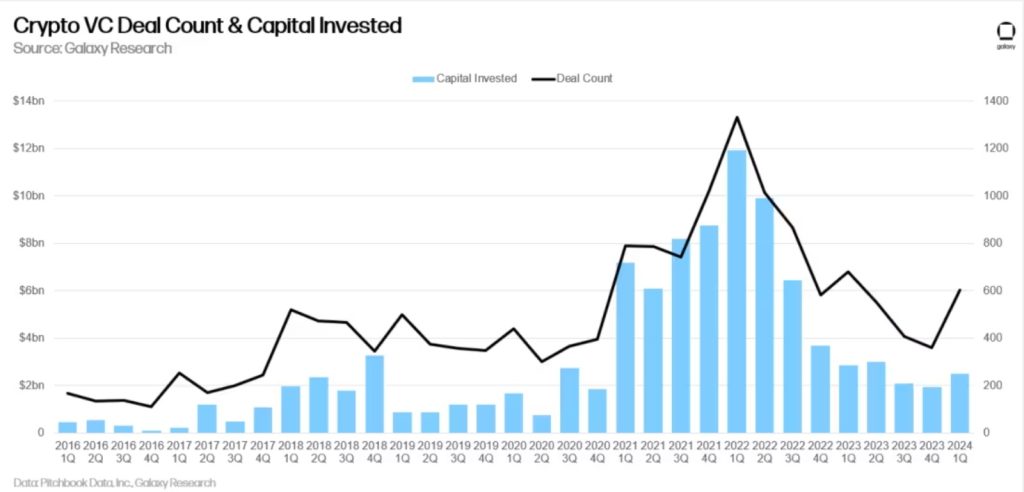Bitget Wallet’s COO Showcases Web3 Wallet Security Strategies at Blockchain Life Dubai
At this month’s Blockchain Life Dubai conference, Bitget Wallet’s Chief Operating Officer Alvin Kan participated in a panel discussion alongside industry experts from SafePal, Ledger, Trust Wallet, Telegram Wallet, and CoinTelegraph journalists. The discussion focused on strategies to enhance the security and user-friendliness of decentralized wallets, including using different wallet technologies like hot, cold, MPC, AA, and multi-signature wallets.
Kan highlighted the significant security vulnerabilities in the Web3 environment, emphasizing the potential risk of privacy leakage associated with every operation.
“In order to build a secure wallet platform, a comprehensive and systematic security solution has to be implemented,” he said on the panel at the conference. “This means ensuring that security measures are introduced at every stage of the user’s journey, and at every phase on the back-end as well, to ensure thorough construction, expansion, and re-evaluation of the wallet’s security parameters.”
Kan comprehensively examined Bitget Wallet’s security measures and highlighted the typical reasons behind asset loss. These include misplacing one’s private key, unintentionally endorsing malicious contracts, and engaging with deceitful DApps or tokens. Bitget Wallet has taken significant steps to address these concerns. They have introduced “keyless” MPC Wallets, which enhance security. Additionally, they have established partnerships with reputable security experts in the industry to conduct thorough audits of the wallet’s core codes for the Swap and NFT Marketplace. Furthermore, the wallet offers hardware wallet connectivity, further bolstering its security measures. In addition, the wallet also participates in a $300 million user protection fund with Bitget, which further strengthens its ability to withstand risks.
Highlighting the importance of these features in the current Web3 landscape, Alvin emphasized the need for builders and developers to be vigilant about the increasing risks in Web3. Given the ever-increasing complexity and covert nature of threats, it is crucial for projects to implement both reactive and proactive measures to protect against them. Bitget Wallet incorporates built-in risk alerts for potentially dangerous tokens and DApps while also utilizing Flashbots to counter potential Maximum Extractable Value (MEV) attacks on the Ethereum blockchain. According to Kan, the wallet has implemented measures to prevent users’ assets from being mistakenly transferred or burned, including asset isolation and DApp interaction isolation for popular Bitcoin on-chain assets over the past six months.
The battle against malicious activity doesn’t end there, though. During the panel discussion, Kan highlighted the importance of offering comprehensive educational resources to users. This enables them to stay informed about the latest risks and challenges in the Web3 space. This is an essential aspect of the overall user experience, which should be maintained as seamless and uninterrupted, even in the face of a strong security system.
“When designing a wallet, it is crucial to find the optimal balance between convenience and security,” Alvin said as he closed off the panel discussion. “We need to constantly keep ourselves updated on the latest technologies and methodologies employed by malicious actors, and implement proactive prevention measures under the hood that can be kept both seamless and targeted to still maintain a smooth user experience.”






